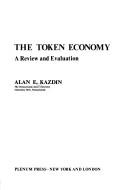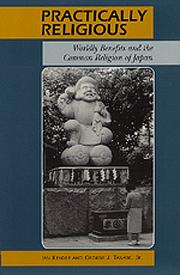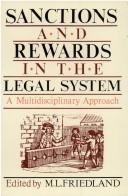| Listing 1 - 10 of 68 | << page >> |
Sort by
|
Book
Abstract | Keywords | Export | Availability | Bookmark
 Loading...
Loading...Choose an application
- Reference Manager
- EndNote
- RefWorks (Direct export to RefWorks)
This eBook is a collection of articles from a Frontiers Research Topic. Frontiers Research Topics are very popular trademarks of the Frontiers Journals Series: they are collections of at least ten articles, all centered on a particular subject. With their unique mix of varied contributions from Original Research to Review Articles, Frontiers Research Topics unify the most influential researchers, the latest key findings and historical advances in a hot research area! Find out more on how to host your own Frontiers Research Topic or contribute to one as an author by contacting the Frontiers Editorial Office: frontiersin.org/about/contact
reward --- anticipation --- consummation --- temporal dynamics --- individual differences

ISBN: 0306309629 146134123X 1461341213 Year: 1977 Publisher: New York Plenum Press
Abstract | Keywords | Export | Availability | Bookmark
 Loading...
Loading...Choose an application
- Reference Manager
- EndNote
- RefWorks (Direct export to RefWorks)
Psychiatry --- Token economy (Psychology) --- Behavior Therapy --- Reward --- Economies, Token (Psychology) --- Economy, Token (Psychology) --- Token reinforcement (Psychology) --- Behavior modification --- Reward (Psychology) --- Behavior Therapy. --- Reward.
Book
Abstract | Keywords | Export | Availability | Bookmark
 Loading...
Loading...Choose an application
- Reference Manager
- EndNote
- RefWorks (Direct export to RefWorks)
This eBook is a collection of articles from a Frontiers Research Topic. Frontiers Research Topics are very popular trademarks of the Frontiers Journals Series: they are collections of at least ten articles, all centered on a particular subject. With their unique mix of varied contributions from Original Research to Review Articles, Frontiers Research Topics unify the most influential researchers, the latest key findings and historical advances in a hot research area! Find out more on how to host your own Frontiers Research Topic or contribute to one as an author by contacting the Frontiers Editorial Office: frontiersin.org/about/contact
invertebrate --- natural reward --- Addiction --- alcohol --- Alkaloids --- psychostimulant --- Learning --- Dopamine
Book
ISBN: 0199300739 0199300747 9780199300730 9780199300747 Year: 2014 Publisher: Oxford Oxford University Press
Abstract | Keywords | Export | Availability | Bookmark
 Loading...
Loading...Choose an application
- Reference Manager
- EndNote
- RefWorks (Direct export to RefWorks)
Cooperativeness --- Incentive (Psychology) --- Punishment --- Reward (Psychology) --- Social interaction

ISBN: 0824820908 0824820657 9780824820909 Year: 1998 Publisher: Honolulu: University of Hawai'i Press,
Abstract | Keywords | Export | Availability | Bookmark
 Loading...
Loading...Choose an application
- Reference Manager
- EndNote
- RefWorks (Direct export to RefWorks)
Reward (Theology) --- Reward (Buddhism) --- Reward (Shinto) --- Goriyaku --- Japan --- Religious life and customs --- J1714 --- J1700 --- Japan: Religion in general -- sociology of religion --- Japan: Religion -- general and history --- Goriyaku. --- Religious life and customs. --- Reward (Buddhism). --- Reward (Shinto). --- Reward (Theology). --- Good works (Theology) --- Merit (Christianity) --- Shinto --- Buddhism --- Pure Land Buddhism --- Doctrines --- Japan - Religious life and customs --- Japan: Religion in general
Book
ISBN: 9782889194322 Year: 2015 Publisher: Frontiers Media SA
Abstract | Keywords | Export | Availability | Bookmark
 Loading...
Loading...Choose an application
- Reference Manager
- EndNote
- RefWorks (Direct export to RefWorks)
For several decades, theory and research has drawn links between dopaminergic neurotransmission and various aspects of personality and individual differences, as well as major personality processes. Recent increases in the availability and affordability of neuroscience methods have permitted thorough investigation of such links as part of the thriving field of personality neuroscience. However, the picture emerging from this body of research is somewhat puzzling; Rather than being linked to only a few converging dimensions of individual differences in psychological functioning, dopamine seems to be associated with a wide range of rather disparate traits and psychopathological conditions including (among various others) impulsivity, extraversion, anxiety, reward sensitivity, approach behaviour, achievement motivation, working memory performance, cognitive flexibility, depression, anhedonia, attention deficit hyperactivity disorder (ADHD), and schizophrenia. Empirical research in this area typically focuses on only one piece of this puzzle based on a specific strand of theory and a narrow section of relevant prior findings. The present research topic will, for the first time, attempt to provide a fairly complete picture of the whole puzzle including all its disparate parts. Contributors will therefore be explicitly encouraged to go beyond their own specific dopamine-personality hypotheses and place their work in a broader context, thereby helping to forge links between largely non-overlapping research traditions.
Animal Biochemistry --- Human Anatomy & Physiology --- Health & Biological Sciences --- Dopamine --- Extraversion --- Personality --- schizotypy --- Reward

ISBN: 1282039644 9786612039645 1442679557 9781442679559 9780802066886 0802066887 0802057772 0802066887 9780802057778 9781282039643 0802057772 9780802057778 6612039647 Year: 1989 Publisher: Toronto, Ont. University of Toronto Press
Abstract | Keywords | Export | Availability | Bookmark
 Loading...
Loading...Choose an application
- Reference Manager
- EndNote
- RefWorks (Direct export to RefWorks)
This book is the first stage in a program on sanctions and rewards in the legal system sponsored by the Canadian Institute for Advanced Research and part of the Institute's wider program on law and society.
Sanctions (Law) --- Reward (Law) --- Contracts --- Declaration of intention --- Promise (Law) --- Law --- Nullity --- Sanction
Book
ISBN: 3727806990 Year: 1990 Publisher: Freiburg Universitätsverl.
Abstract | Keywords | Export | Availability | Bookmark
 Loading...
Loading...Choose an application
- Reference Manager
- EndNote
- RefWorks (Direct export to RefWorks)
Book
Year: 2015 Publisher: Frontiers Media SA
Abstract | Keywords | Export | Availability | Bookmark
 Loading...
Loading...Choose an application
- Reference Manager
- EndNote
- RefWorks (Direct export to RefWorks)
In the burdened scenes of everyday life, our brains must select from among many competing inputs for perceptual synthesis - so that only the most relevant receive full attention and irrelevant (distracting) information is suppressed. At the same time, we must remain responsive to salient events outside our current focus of attention - and balancing these two processing modes is a fundamental task our brain constantly needs to solve. Both the physical saliency of a stimulus, as well as top-down predictions about imminent sensations crucially influence attentional selection and consequently the response to unexpected events. Research over recent decades has identified two separate brain networks involved in predictive top-down control and reorientation to unattended events (or oddball stimuli): the dorsal and ventral fronto-parietal attention systems of the human brain. Moreover, specific electrophysiological brain responses are known to characterize attentional orienting as well as the processing of deviant stimuli. However, many key questions are outstanding. What are the exact functional differences between these cortical attention systems? How are they lateralised in the two hemispheres? How do top-down and bottom-up signals interact to enable flexible attentional control? How does structural damage to one system affect the functionality of the other in brain damaged patients? Are there sensory-specific and supra-modal attentional systems in the brain? In addition to these questions, it is now accepted that brain responses are not only affected by the saliency of external stimuli, but also by our expectations about sensory inputs. How these two influences are balanced, and how predictions are formed in cortical networks, or generated on the basis of experience-dependent learning, are intriguing issues. In this Research Topic, we aim to collect innovative contributions that shed further light on the (cortical) mechanisms of attentional control in the human brain. In particular, we would like to encourage submissions that investigate the behavioural correlates, functional anatomy or electrophysiological markers of attentional selection and reorientation. Special emphasis will be given to studies investigating the context-sensitivity of these attentional processes in relation to prior expectations, trial history, contextual cues or physical saliency. We would like to encourage submissions employing different research methods (psychophysical recordings, neuroimaging techniques such as fMRI, MEG, EEG or ECoG, as well as neurostimulation methods such as TMS or tDCS) in healthy volunteers or neurological patients. Computational models and animal studies are also welcome. Finally, we also welcome submission of meta-analyses and reviews articles that provide new insights into, or conclusions about recent work in the field.
Neuroscience. --- Perception --- Attentional control. --- Physiological aspects. --- reward --- emotions --- EEG --- attentional networks --- trial history --- TMS --- predictions --- neuroimaging
Book
Year: 1685 Publisher: London : printed for J. Salusbury, at the Atlas in Cornhil, near the Royal Exchange,
Abstract | Keywords | Export | Availability | Bookmark
 Loading...
Loading...Choose an application
- Reference Manager
- EndNote
- RefWorks (Direct export to RefWorks)
eebo-0037
Christian life --- Merit (Christianity) --- Good works (Theology) --- Reward (Theology) --- Biblical teaching --- Bible. --- Commentaries
| Listing 1 - 10 of 68 | << page >> |
Sort by
|

 Search
Search Feedback
Feedback About UniCat
About UniCat  Help
Help News
News